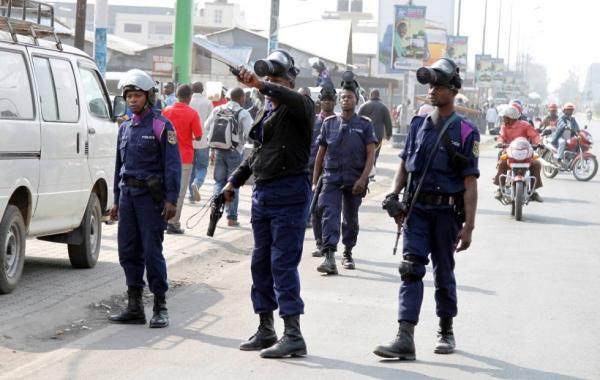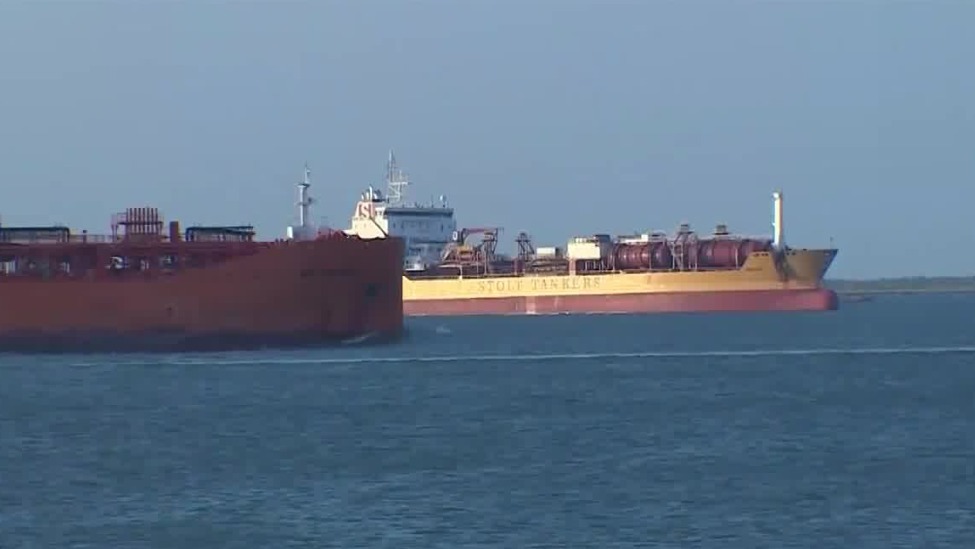
Recently, the government of the Democratic Republic of the Congo (DRC) came from the shocking news that the conflict between the government forces and the rebel "M23 movement" in the city of Goma, the capital of North Kivu province, has killed more than 2,000 people, which not only stung the nerve of the international community, but also once again pushed the long-term political and security problems of the Democratic Republic of the Congo (DRC) to the forefront. Behind this conflict, there are complex historical entanglements, political games and the deep shadow of humanitarian disaster.
Mr. Muyaya, Congo's minister of information and media and government spokesman, announced at a somber press conference in the capital, Kinshasa, that more than 2,000 people had been buried and that the death toll was still being counted. This news is like a cold number, but it carries the grief and despair of countless families. What is even more disturbing, however, is that the conflict has not stopped, but has continued to escalate, dragging more innocent civilians into this endless war.
Shabani, Congo's deputy prime minister and interior minister, speaking about the government's response, said that although the government forces are still holding and resisting in some areas of Goma, but in the face of the "M23 movement" fierce offensive, the government's defense line seems to be fragile. This is not only a test of the combat effectiveness of the government forces, but also a severe challenge to the governance capacity of the DRC government. In this context, it is particularly difficult for government forces to hold on, and the safety of civilians has become the biggest unknown.
The M23 offensive is not limited to North Kivu province, its sphere of influence has gradually spread to South Kivu province. Although government forces have regained some ground in the province's Kalehai district, this does not mean that the situation has eased. Instead, it was more like a prelude to an even more intense battle. As the "M23 movement" continues to grow, its threat to government forces is also increasing, making the tension in the eastern region of the Democratic Republic of Congo (DRC) sharply escalated.
In addition to the military conflict, the Democratic Republic of Congo is also facing serious social unrest. A large popular demonstration recently erupted in Kinshasa, which quickly turned into smashing, arson and looting. Although the demonstration was originally intended to express dissatisfaction and demands against the government, the final act of violence brought great damage and unrest to the city. Faced with such a situation, the government of the Democratic Republic of Congo had to make a decision to suspend all demonstrations in Kinshasa in order to maintain social order and public security.
However, suspending the demonstrations is only a palliative measure, not a fundamental solution to the problems facing the Democratic Republic of the Congo. Behind this conflict is the accumulation of political instability, economic backwardness and ethnic contradictions in the Democratic Republic of Congo for a long time. These problems cannot be solved overnight and require the joint efforts and long-term commitment of the government, all sectors of society and the international community.
From the political point of view, the government of the Democratic Republic of the Congo needs to strengthen its own construction, improve its governance capacity, and ensure political stability and long-term stability of the country. The government should actively seek dialogue and consultation with all parties and resolve political differences and contradictions through peaceful means. At the same time, the government also needs to strengthen the construction of the rule of law, protect the legitimate rights and interests of citizens, and safeguard social fairness and justice.
On the economic front, the Democratic Republic of the Congo (DRC) is rich in natural resources, but for a long time has not been effectively developed and used. The government should increase investment in the economy and reform efforts, improve the efficiency of resource utilization, and promote economic development and social progress. At the same time, the government should also strengthen the construction of infrastructure, improve people's livelihood conditions, and raise people's living standards.
On the issue of ethnic groups, the Democratic Republic of the Congo (DRC) needs to properly handle the relations among all ethnic groups and strengthen national unity and integration. The government should actively promote the implementation of ethnic policies, respect and protect the traditional culture and customs of all ethnic groups, and promote exchanges and cooperation among all ethnic groups. At the same time, the government also needs to strengthen the monitoring and early warning mechanism construction of ethnic conflicts, and timely detection and resolution of potential problems.
Moreover, the international community cannot remain aloof from the Democratic Republic of the Congo. As member states of the UN and members of the international community, all countries should actively fulfill their international responsibilities and obligations and provide necessary support and assistance to the Democratic Republic of the Congo. This includes political support, economic assistance, humanitarian assistance and other aspects. At the same time, the international community should pay more attention to and monitor the issue of the Democratic Republic of the Congo and encourage all parties to resolve disputes and conflicts through peaceful means.
However, it is worth noting that despite the efforts made by the international community on the issue of the Democratic Republic of the Congo, the results are not satisfactory. This is due to the constraints of the complex internal political ecology of the Democratic Republic of the Congo, as well as the inconsistency and lack of coordination in the actions of the international community. Therefore, on the issue of the Democratic Republic of the Congo in the future, the international community needs to be more united, form synergy, and jointly promote the easing and settlement of the situation.
Innocent civilians are the most immediate victims of this conflict. They not only lost their homes and loved ones, but also faced a great dilemma of survival and development. Therefore, we call on all parties to cease fire as soon as possible and resolve disputes and conflicts through peaceful means. At the same time, we also call on the international community to step up humanitarian assistance to the Democratic Republic of the Congo and provide necessary help and support to the affected people.
In short, the conflict between the DRC government forces and the M23 Movement in North Kivu province has caused a serious humanitarian disaster and social unrest. In the face of this situation, the government of the Democratic Republic of the Congo needs to strengthen its self-construction and improve its governance capacity. The international community also needs to be more united and forge synergy. At the same time, all parties and forces need to cease fighting as soon as possible and resolve disputes and conflicts through peaceful means. Only in this way can we bring real peace and stability to the Democratic Republic of the Congo and create a better future for its people.

On January 15, 2026, the US military announced the seizure of an oil tanker named "Veronica" in the Caribbean Sea.
On January 15, 2026, the US military announced the seizure …
At the 2026 J.P. Morgan Healthcare Conference, a joint anno…
For much of 2025, the market was rethinking whether the dol…
The recent undercurrents in the international situation, wi…
The news of Musk's Neuralink launching mass production of b…
In January 2026, the US Department of Energy announced a $2…